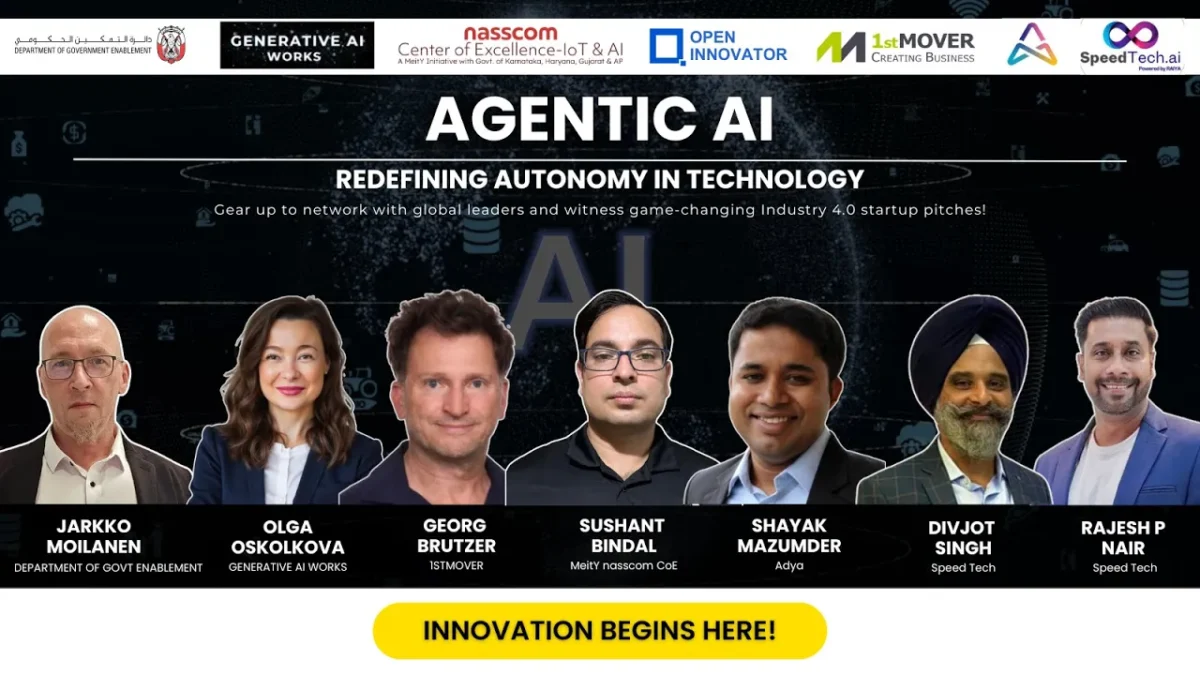In the “Responsible AI Knowledge Session,” experts from diverse fields emphasize data privacy, cultural context, and ethical practices as artificial intelligence increasingly shapes our daily decisions. The session reveals practical strategies for building trustworthy AI systems while navigating regulatory challenges and maintaining human oversight.
Executive Summary
The “Responsible AI Knowledge Session,” hosted by Open Innovator on April 17th, served as a platform for leading figures in the industry to address the vital necessity of ethically integrating artificial intelligence as it permeates various facets of our daily lives.
The session’s discourse revolved around the significance of linguistic diversity in AI models, establishing trust through ethical methodologies, the influence of regulations, and the imperatives of transparency, as well as the essence of cross-disciplinary collaboration for the effective adoption of AI.
Speakers underscored the importance of safeguarding data privacy, considering cultural contexts, and actively involving stakeholders throughout the AI development process, advocating for a methodical, iterative approach.
Key Speakers
The session featured insights from several AI industry experts:
- Sarah Matthews, Addeco Group, discussing marketing applications
- Rym Bachouche, CNTXT AI addressing implementation strategies
- Alexandra Feeley, Oxford University Press, focusing on localization and cultural contexts
- Michael Charles Borrelli, Director at AI and Partners
- Abilash Soundararajan, Founder of PrivaSapient
- Moderated by Naman Kothari, NASSCOM CoE
Insights
Alexandra Feeley from Oxford University Press’s informed about the initiatives by the organization to promote linguistic and cultural diversity in AI by leveraging their substantial language resources. This involved digitizing under-resourced languages and enhancing the reliability of generative AI through authoritative data sources like dictionaries, thereby enabling AI models to reflect contemporary language usage more precisely.
Sarah Matthews, specializing in AI’s role in marketing, stressed the importance of maintaining transparency and incorporating human elements in customer interactions, alongside ethical data stewardship. She highlighted the need for marketers to communicate openly about AI usage while ensuring that AI-generated content adheres to brand values.
Alexandra Feeley delved into cultural sensitivity in AI localization, emphasizing that a simple translation approach is insufficient without an understanding of cultural subtleties. She accentuated the importance of using native languages in AI systems for precision and high-quality experiences, especially in diverse linguistic landscapes such as Hindi.
Michael Charles Borrelli, from AI and Partners, introduced the concept of “Know Your AI” (KYI), drawing a parallel with the financial sector’s “Know Your Client” (KYC) practice. Borrelli posited that AI products require rigorous pre- and post-market scrutiny, akin to pharmaceutical oversight, to foster trust and ensure commercial viability.
Rym Bachouche underscored a common error where organizations hasten AI implementation without adequate data preparation and interdisciplinary alignment. The session’s panellists emphasized the foundational work of data cleansing and annotation, often neglected in favor of swift innovation.
Abilash Soundararajan, founder of PrivaSapien, presented a privacy-enhancing technology aimed at practical responsible AI implementation. His platform integrates privacy management, threat modeling, and AI inference technologies to assist organizations in quantifying and mitigating data risks while adhering to regulations like HIPAA and GDPR, thereby ensuring model safety and accountability.
Collaboration and Implementation
Collaboration was a recurring theme, with a call for transparency and cooperation among legal, cloud security, and data science teams to operationalize AI principles effectively. Responsible AI practices were identified as a means to bolster client trust, secure contracts, and allay AI adoption apprehensions. Successful collaboration hinges on valuing each team’s expertise, fostering open dialogue, and knowledge sharing.
Moving Forward
The event culminated with a strong assertion of the critical need to maintain control over our data to prevent over-reliance on algorithms that could jeopardize our civilization. The speakers advocated for preserving human critical thinking, educating future generations on technology risks, and committing to perpetual learning and curiosity. They suggested that a successful AI integration is an ongoing commitment that encompasses operational, ethical, regulatory, and societal dimensions rather than a checklist-based endeavor.
In summary, the session highlighted the profound implications AI has for humanity’s future and the imperative for responsible development and deployment practices. The experts called for an experimental and iterative approach to AI innovation, focusing on staff training and fostering data-driven cultures within organizations to ensure that AI initiatives remain both effective and ethically sound.
Reach out to us at open-innovator@quotients.com to join our upcoming sessions. We explore a wide range of technological advancements, the startups driving them, and their influence on the industry and related ecosystems.







